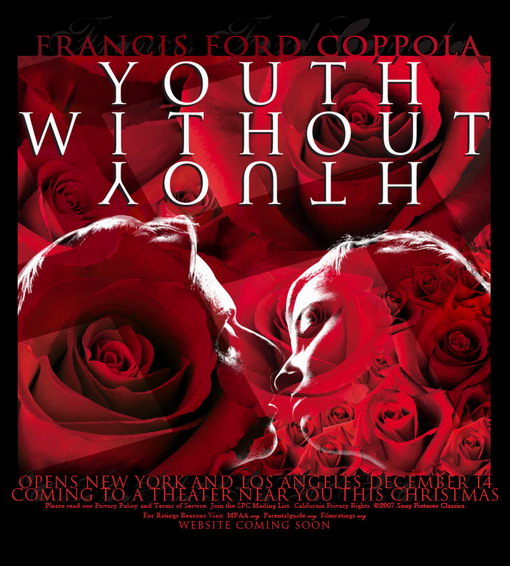Francis Ford Coppola
b. 7 April, 1939, Detroit, Michigan, USA
by Brian Dauth
Senses of Cinema: Great Directors

Most critiques of Francis Ford Coppola's career interweave film criticism with biography and produce an account of a wasted genius, a failed wunderkind, a director who had a few great years, produced some magnificent movies, but slid further and further downhill as time passed. With the publication of this article, I am pleased to report that any and all announcements of Coppola's artistic demise are not only premature, but flat-out wrong.
What actually happened was that Francis Ford Coppola did what any great and original artist does: he went in directions unanticipated by his critics. For his transgressions Coppola was made to pay over and over again. But not here. I want to praise Coppola, not bury him, and while I can only touch on a portion of his genius, I hope I can inspire others to look carefully at a body of work that is one of the most significant of recent times.
For me, Coppola is the most talented and interesting filmmaker to come to prominence in the 1970s. He began his career (as many filmmakers did) by working with Roger Corman. His first film, Dementia 13 (1963), was made with equipment and sets borrowed from another Corman picture on which he worked as dialogue director. Coppola was also a sought-after screenwriter and script doctor (he won his first Academy Award for his contributions to the screenplay of Patton [1970]).
But even at the beginning of his career, Coppola was bending the rules of Hollywood filmmaking. For The Rain People (1969) he loaded crew, actors and equipment into station wagons and drove cross-country to tell the story of Natalie Ravenna (Shirley Knight) and her journey of self-discovery (the first of many such journeys undertaken by Coppola characters). He also founded American Zoetrope, the production company that gave many film artists both a home and help at the start of their careers, among them George Lucas whose THX 1138 (1971) and American Graffiti (1973) were produced with Coppola's assistance.
Coppola Values Family
Coppola is fascinated by families – their members, structures, dynamics, rules and rituals. These families come in all shapes and sizes: those created by birth (The Godfather) and social forces (The Outsiders), as well as those springing from shared goals (Tucker: The Man and His Dream) and random circumstance (Apocalypse Now). Coppola is intensely interested in how people are able (or unable) to live and work together.
The most famous Coppola family is the Corleones whose history he chronicles in The Godfather trilogy – a series of movies made over a period of 18 years (1972–1990). The Corleone's story has become part of American folklore not merely because Coppola knows how to spin a good yarn (though his command of cinematic technique plays a large role in the success of these films), but because the trilogy also tells the story of American expansion and capitalism in the twentieth century (the films span a period from 1901 to 1979). The Corleone's saga is a tale of both a family and a nation.
To Read the Rest of the Profile

No comments:
Post a Comment